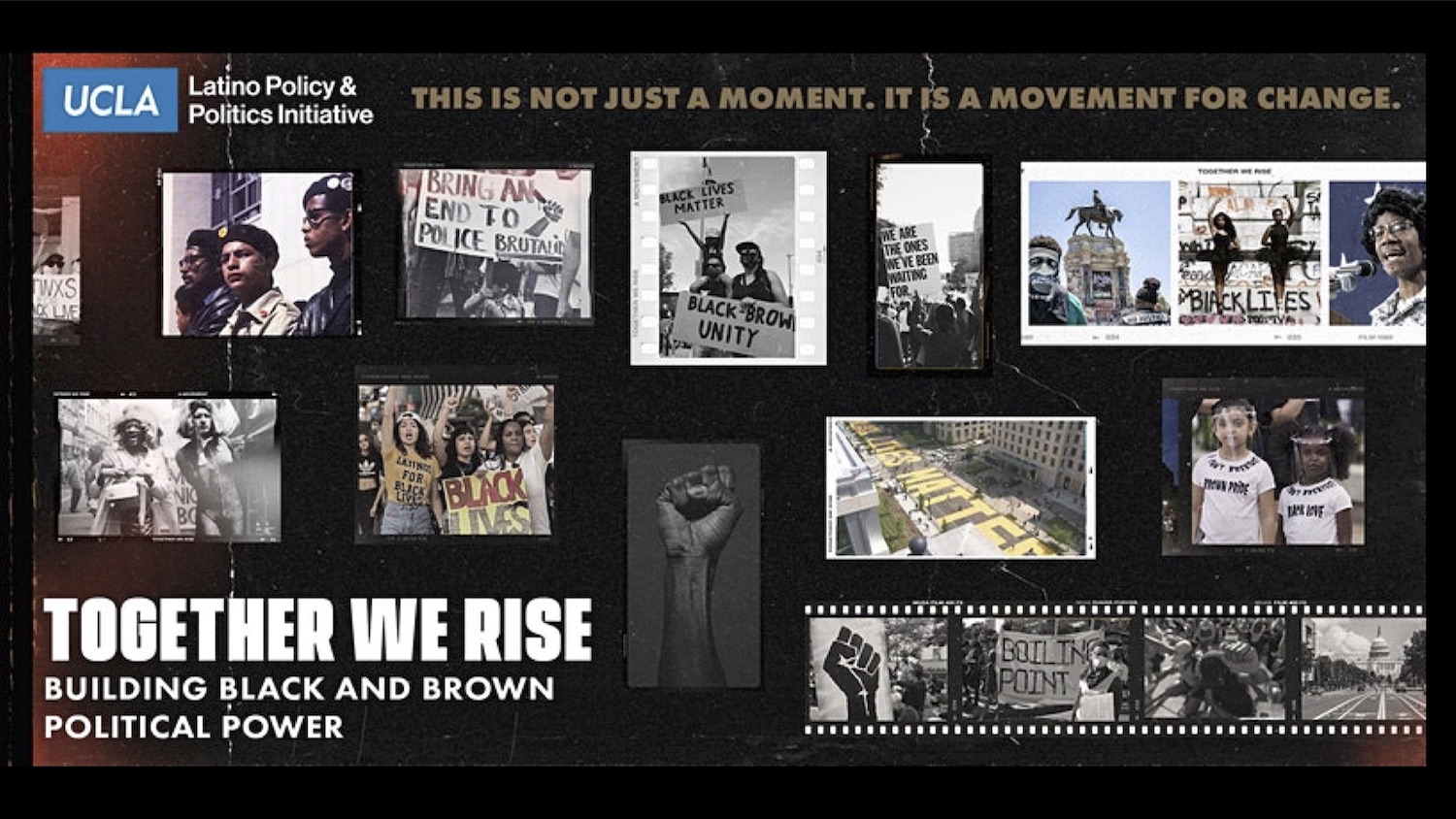The Cost of Excluding Undocumented Workers From Stimulus Funds
The federal government’s decision to exclude undocumented residents from the $1,200 stimulus payments given to taxpayers during the COVID-19 pandemic resulted in a loss of $10 billion in potential economic output, a UCLA study has found. It also cost 82,000 jobs nationally and 17,000 jobs in California, according to the study, a collaboration among UCLA’s Latino Policy and Politics Initiative, North American Integration and Development Center and Institute for Research on Labor and Employment. Undocumented workers and their families contributed more than $1.6 trillion to the nation’s gross domestic product in 2018 through shopping and workforce activities, and their reduced purchasing power amid a looming recession is both a public health and economic crisis, said Raul Hinojosa, an associate professor of Chicano studies and the report’s lead author. “It is cruel to deny undocumented residents financial assistance as unemployment rates skyrocket, but it’s also counterproductive fiscal policy that has negative consequences for all Americans who benefit from their economic contributions,” he said. The national unemployment rate for undocumented workers reached 29% in May, much higher than the rate for any other demographic group. The study found that the economic benefits of including undocumented workers in future relief efforts would outweigh the costs. The economic activity generated by undocumented immigrants spending the tax credits they would receive under the HEROES Act, currently being debated in Congress, would support 112,000 jobs nationally and produce $14 billion in economic output — which would far exceed the $9.5 billion price tag of including them in recovery efforts. — Eliza Moreno
Bass, Castro Join Dialogue on Black-Brown Coalition-Building
Black and Latino advocates and elected officials explored ways that communities of color can build coalitions to transform the nation’s social and political landscape during a webinar hosted by UCLA’s Latino Policy and Politics Initiative (LPPI). Rep. Karen Bass, chair of the Congressional Black Caucus, and Julián Castro, former U.S. Secretary of Housing and Urban Development, spoke of the importance of finding common ground in an era when communities of color are bearing the brunt of COVID-19, police violence, joblessness, housing insecurity and disenfranchisement. “We have to never allow ourselves to be divided,” said Bass, who noted that Congress members of Black, Hispanic, Asian and Native American descent work in sync to craft a common agenda. Castro argued that real change requires lifting up the next generation of leaders. “What we need to do is be intentional about passing that baton on,” he said. Bass and Castro were joined by Genny Castillo of the Southern Economic Advancement Project and Jonathan Jayes-Green of the Marguerite Casey Foundation, who weighed in on barriers facing candidates of color. Politico reporter Laura Barrón-López moderated the July 22 dialogue. “What we’ve learned today is that Latinos have an important role to play in the Movement for Black Lives and really in protecting Black life,” LPPI Director Sonja Diaz said. “One thing is clear to me from this conversation. We can’t return to the old normal. And when we chart a path forward, especially in the streets and in chambers of power, we’ll only get stronger if we work together.”

Report Explores Temporary Settlement Options in Wake of Evictions
A final report in a three-part series on housing justice and evictions during the COVID-19 pandemic has been released by the UCLA Luskin Institute on Inequality and Democracy. The report draws upon guidance from unhoused people, legal advocates and community-based researchers to strongly advise governments to sanction existing self-organized communities of unhoused people and maintain sanitation stations on-site. The authors also recommend that authorities cease the seizing of property from the unhoused and stop conducting sweeps that result in people’s displacement from public space. The report is offered as guidance for policymakers and organizers seeking to support insecurely housed and unhoused people during and after the pandemic. It was written by doctoral student Hilary Malson of UCLA Luskin Urban Planning and Gary Blasi, professor of law emeritus at the UCLA School of Law. The authors also cautiously recommend that local governments establish temporary settlements in which tents and tiny structures would offer private, socially distanced forms of emergency shelter.
Students Urged to Let Personal Mission Guide Career Choices

Marcia Choo shares advice during Career Services webinar.
Current students and recent graduates of UCLA Luskin tuned into Zoom to hear Wells Fargo Vice President of Community Development Marcia Choo discuss incorporating passion for equity and social justice in career decisions. After graduating from UCLA, Choo explored many different careers, building an eclectic resume while sticking to a common theme of community engagement and community service. She worked in race relations, conflict resolution, government and nonprofits before joining Wells Fargo Bank to pursue corporate philanthropy. Now in her sixth year at the bank, Choo channels resources to help underserved communities. “I hope my trajectory gives you some hope and encouragement that you shouldn’t limit yourself,” she said at the July 7 webinar hosted by UCLA Luskin Career Services. “You can write your own job description, you can create your own organization. The job you end up doing may not exist until you create it.” Choo explained how a part-time job while she was a UCLA undergraduate eventually transitioned into a full-time position, giving her workforce experience and a confidence boost. “Internships and fellowships are the best way to check out what you might want to do,” she noted. To current students, she offered this advice: Build your network, learn to be your own advocate, and start saving for retirement early. She encouraged students and graduates to consider their personal mission and purpose, what defines them, and make it their brand — and to imagine broader possibilities in the context of the changing world. “Don’t lose your humanity and purpose,” she said. — Zoe Day
Lens Leads Dialogue on Economic Empowerment in Black Communities
Michael Lens, associate professor of urban planning and public policy, moderated the July 6 webinar “Buying Black: Reframing Urbanism and Economics,” a conversation with three experts on the intersection of consumer behavior, city planning and efforts to dismantle systemic racism. A virtual audience of more than 350 tuned in to hear the dialogue on the importance of generating economic opportunities within the Black community. Author and advocate Maggie Anderson, CEO of the Empowerment Experiment Foundation, challenged viewers to make a commitment to supporting Black-owned businesses, saying, “We cannot keep fighting against racism in the streets with our protests if we’re going to keep enabling racism in the stores with our purchases.” A Kouture, president of the International Black Restaurant and Hospitality Association, described her efforts to use data on Black commerce to win support from investors, developers and government agencies in metropolitan areas around the country. And Matthew Miller, a cultural geographer at the University of Pennsylvania, described his research into Black business corridors, including in South Los Angeles, which are “not just a place for job creation and wealth accumulation” but also “community anchors for people to confront marginalization both within the Black community and outside of it.” Said Lens, “We are at this amazing and painful moment of racial awakening. Everybody’s lining up to make statements and say nice things, but we have long gotten past the point at which specific, concrete actions need to be made.” The panelists planned to reconnect to plan further collaboration following the webinar, which can be viewed on demand or on Facebook.

Vacant Tourist Hotels Should Be Repurposed to House Homeless, Report Urges
A new UCLA report calls for the increased conversion of hotel rooms to provide shelter for thousands of people in Los Angeles who are predicted to lose their housing as a result of the COVID-19 pandemic. The report makes the case for an effort dubbed by the authors as (More) Hotels as Housing to repurpose tourist hotel and motel rooms that have become vacant during a downturn in global tourism that may extend for many years as a result of the health crisis. “We advocate shifting property use from hospitality to housing through the large-scale public acquisition of tourist hotels and motels,” write the report’s authors, who include Gary Blasi, a UCLA professor emeritus of law, and Professor Ananya Roy, the director of the UCLA Luskin Institute on Inequality and Democracy. The report urges public officials to act quickly to protect thousands of newly unemployed workers who will soon face eviction for unpaid rent and are likely to become homeless as a result. The authors note that Los Angeles has a long history of building luxury hotels for which developers have benefited from public subsidies and land assembly. “It is time to redirect public resources and public purpose tools such as eminent domain for low-income and extremely low-income housing, especially in Black and Brown communities where public investment has primarily taken the form of policing,” according to Blasi, Roy and their co-authors, writer and grassroots organizer Jonny Coleman and housing justice activist and researcher Elana Eden.

Wells Updates ‘Blueprint for Greening Affordable Housing’
Amid the COVID-19 pandemic, understanding the rapid evolution of green building practices and integrating those approaches into affordable housing may be more critical than ever, according to Walker Wells, a UCLA Luskin Urban Planning lecturer. In “Blueprint for Greening Affordable Housing,” Wells and co-author Kimberly Vermeer, a Boston-based sustainability consultant, argue that the best way to meet health and climate challenges is by providing society’s most vulnerable people with housing stability while reducing the environmental, health and climate impacts of constructing and operating buildings. In this fully revised edition of a book first published in 2007, the authors provide guidance on innovative green building practices and green building certifications available for affordable housing. To help builders align design decisions with environment-friendly goals, the authors explain the integrated design process. They also detail best practices for green design, from water management to renewable energy. Acknowledging the complexity of financing green affordable housing projects, Wells and Vermeer also discuss funding sources and the latest financing strategies. New case studies span high-desert homeownership, supportive housing in the Southeast and net-zero family apartments on the coasts. “Blueprint for Greening Affordable Housing” seeks to provide information for everyone in the affordable housing industry, including housing development project managers, designers, engineers, funders and housing advocates. Wells is a principal at Raimi+Associates, a consulting service with offices in Los Angeles, Riverside and Berkeley, California. Vermeer founded and leads Urban Habitat Initiatives, a consulting practice that advances sustainability and climate resilience.




